Welcome back everyone! Not only do we have some new products this week, we also have a few demo videos! Sit back and enjoy all the demo awesomeness!
Classic Nick, Sarah, and Dia...
This week we have a couple new range finders. The VL6180 is a neat little IC that burps out light, determines how long it takes to get back, and tells you the distance to the nearest object. The really cool thing about this chip is how tolerant it is with lighting conditions. Inside is an ambient light sensor which adjusts for the lighting conditions, making it a lot friendlier and accurate to use in bright light, or varied conditions.
The first board is the sensor which has everything you need to play with the VL6180. The chip operates at 2.8V, so there's a regulator which lets you use any voltage you want. It also has the same form factor as the popular Sharp sensors. The I2C interface makes it really easy to daisy-chain several of these together for large arrays.
Want to use the VL6180, but want a simpler board? Check out the breakout board instead. It does away with some of the extra components (mainly the 2.8V voltage regulator) making it perfect for large arrays. If you're going to use a bunch of these, you don't need a regulator on each one, so we've stripped it down to save size and cost.
A couple days ago was Edison's birthday, and we celebrated by re-launching our line of Intel Edison boards. Included in the launch was a new version of the Starter Pack that now includes the Base Block and some hardware.
Lastly, we have a new MagJack breakout. An RJ45 connector has a lot of great uses because Ethernet cables are readily available and inexpensive. This simple breakout has all the pins on one edge making it easy to use in a breadboard.
That's all we have for this week. Have a great Valentine's Day and a great President's Day as well! See you next week with more new demos and products. Thanks for reading and watching.
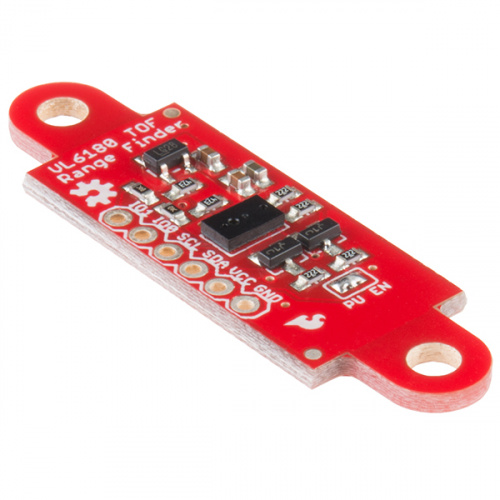
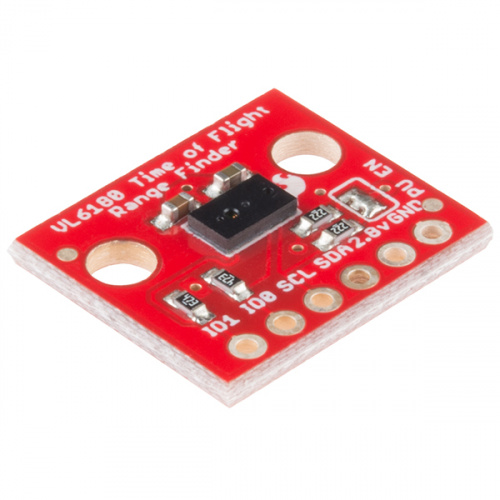
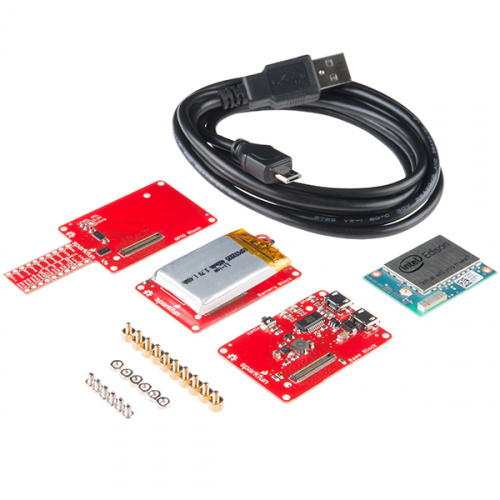
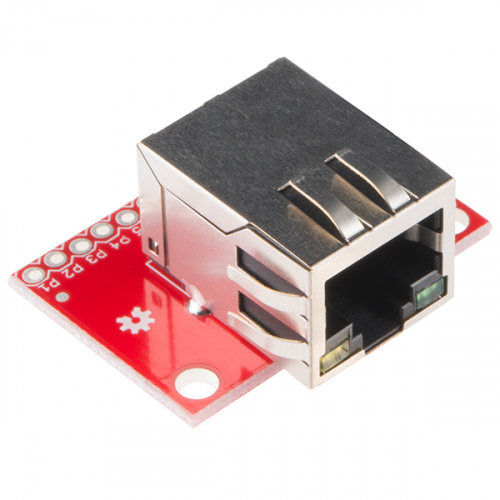
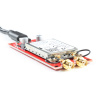






Was that heart beat piece a demo video for ADR? :)
So where does one get that cool beard oil Nick used in the second video?
Better be careful with that stuff, look what it has done to his voice and body (or maybe that's what you are looking for Mr/Ms Jenner :).
"The I2C interface makes it really easy to daisy-chain several of these together for large arrays."
So, I thought all devices on the I2C bus had to have unique IDs? Is this not the case with the VL6180?
Great question! This is from the application note: The default 7-bit address of the VL6180X is 0x29. It can be changed by the user to any 7-bit addresses by writing to the I2C_SLAVE__DEVICE_ADDRESS {0x212} register.
Thanks reb for the reply but I have another question.
If they are all initially arrayed together then how do you change the device address when they all have the same default address? Would you have to configure them prior to mounting them on the same bus?
All these videos are great, but where is the new product post video?
"burps out light, determines how long it takes to get back, and tells you the distance to the nearest object": And thanks to the non-existence of the ether, it's equally accurate no matter which direction you point it in!
I thought it was aether... Also, how do you explain the wibbly wobbly timey wimey substance in a vacuum that tends to keep objects in motion that are in motion? Is time-space bending around the object and filling behind it? If it is not called aether what do you call it? It does do "stuff": http://en.wikipedia.org/wiki/Vacuum_energy It is not a gas, liquid, solid, or plasma.
Yes, the term aether had different connotations way back when. However, we are observing "something" that fills space.